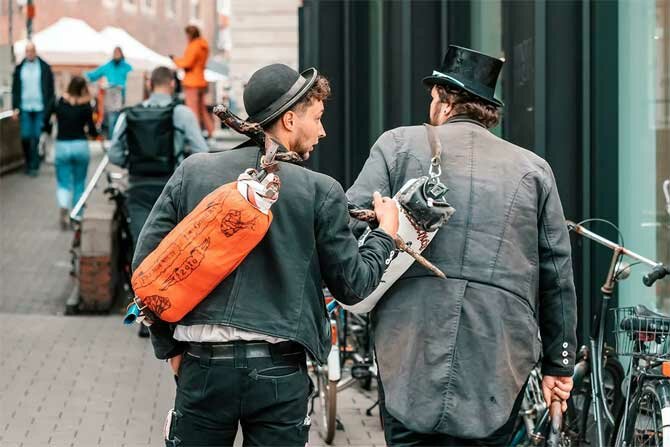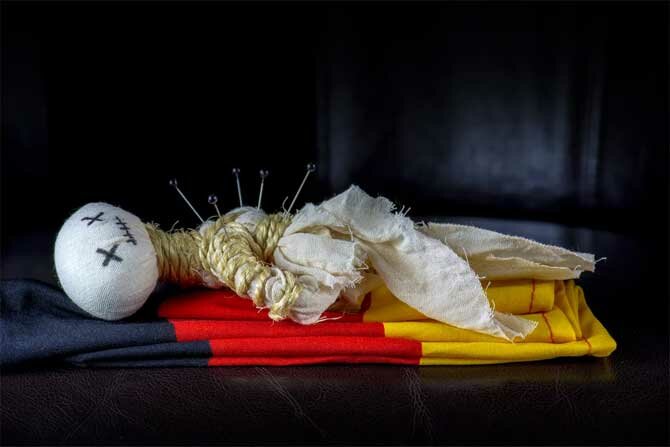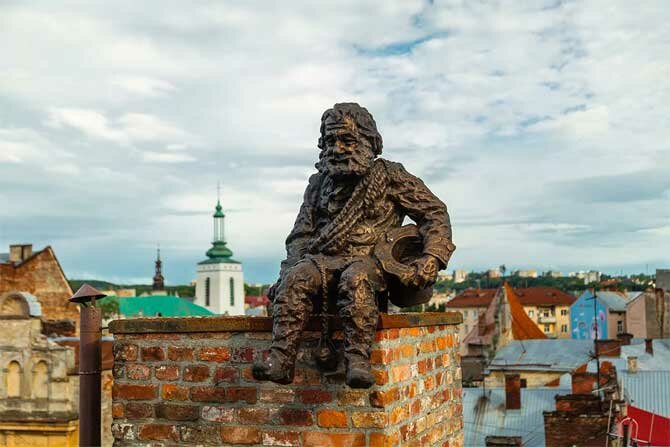Each culture has its own superstitions and signs, which often determine the behavior and habits of people. In this article, we will dive into the world of European superstitions and get acquainted with the most amazing and mysterious beliefs of this continent.
In many European countries, it is believed that knocking on wood brings good luck. Probably, this tradition originates from the Middle Ages, when some churches claimed that they had fragments of the cross of Jesus Christ in their possession. It was believed that knocking on wood is a symbol of good luck and blessings.
In Denmark, as in many other countries, it is believed that broken dishes bring happiness. It is customary for the Danes to keep fragments of broken dishes all year round in order to present them to their relatives and friends on New Year’s Eve. The more pieces a person has, the more luck awaits him next year.

Serbs believe that if you splash water after a departing person, it will bring him good luck. This custom probably comes from the old saying “water flowed, happiness came”.
The Germans, known for their pragmatism, also have their own superstitions. They believe that making a toast with a glass of water can lead to bad luck or even death. This belief, perhaps, originates from ancient Greek mythology, where dead souls drank water from the Lethe River in order to forget their earthly life before entering the afterlife.
Greece and Italy, countries with a rich ancient history, are also full of amazing signs and superstitions. In Greece, many people carry a bat-bone in their purse or pocket to protect themselves from the “evil eye”. However, killing this animal for the sake of obtaining a bone is considered a bad sign. In a traditional Greek house, a cactus usually grows at the doorstep – the pointed thorns of the plant symbolize protection from misfortune and evil spirits. Shoes with the soles up are considered a harbinger of trouble, so you need to quickly return them to their normal position and cast the spell “Scorda!” To ward off trouble.

Italians also believe in many signs and superstitions. One of the most famous is that it is believed that seeing a black cat brings bad luck. To avoid trouble, people usually cross themselves and say a prayer. Also in Italy, it is customary to carry the amulet “corno”, which is an image of a horn and symbolizes protection from adversity.
In France, it is believed that stepping on a crack in the pavement or road can lead to bad luck. The French also believe that raising your finger three times can help ward off trouble.
In the UK, there is a saying that finding four-leaf clover brings good luck, and many British people carefully look for these rare plants in the hope of well-being.
The Irish are closely related to their Celtic ancestors and retain many ancient superstitions. One of the most famous is the legend of leprechauns – small magical creatures that allegedly hide a cauldron of gold at the end of a rainbow. Catching a leprechaun is considered a great success, as he must fulfill three wishes of his master.

The Portuguese believe in “mau olhado” – the “evil eye”, which can harm a person if someone looks at him with envy or ill will. To protect themselves from this evil, the Portuguese wear “Figa” amulets, which are a fist with an outstretched thumb between the index and middle fingers. Amulets can be made from a variety of materials such as wood, stone, or metal, and are often worn around the neck or as a key ring.
In Spain, there is a belief that walking under stairs brings bad luck. This superstition may have arisen from the association of ladders with doom, as they were used in the past to execute criminals. The Spaniards also believe in the omen that opening an umbrella indoors brings bad luck. To ward off trouble, you need to say “Salud, dinero y amor” (“Health, money and love”).
In the Netherlands, a popular superstition is the belief that encountering a spider in the house brings good luck. Many Dutch prefer not to kill these useful animals to avoid attracting bad luck.
The Swedes believe that finding a coin on the street brings good luck and happiness. They also believe that wearing socks inside out can ward off bad luck. This sign is quite common in the country, especially during exams and other important events.

In conclusion, it is worth noting that European superstitions and beliefs are an indispensable part of the cultural heritage of the continent. They reflect the diversity of the history and traditions of the peoples of Europe, helping to preserve the unique spirit of each country. Although some superstitions may seem strange and illogical, they play an important role in the formation of cultural identity and continue to live today through the stories, stories and practices of each people.
To be continued…







Only registered users can leave comments